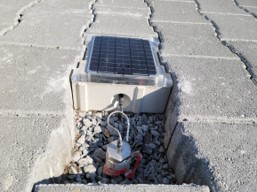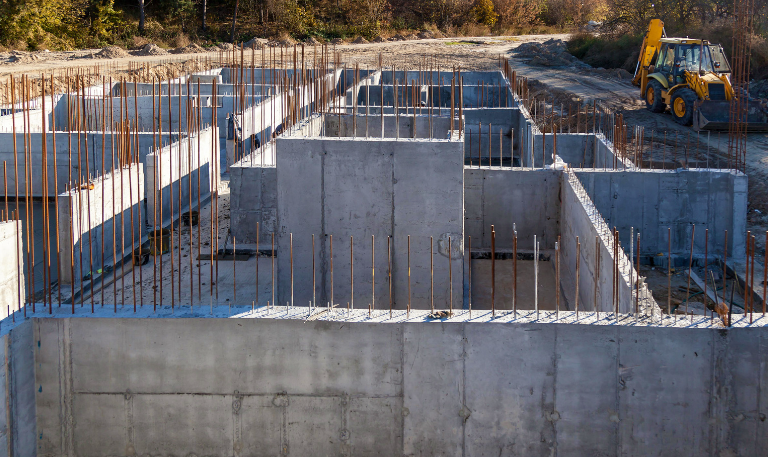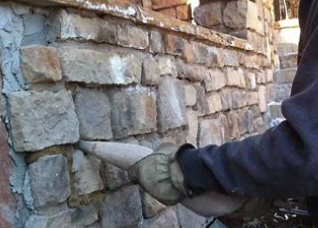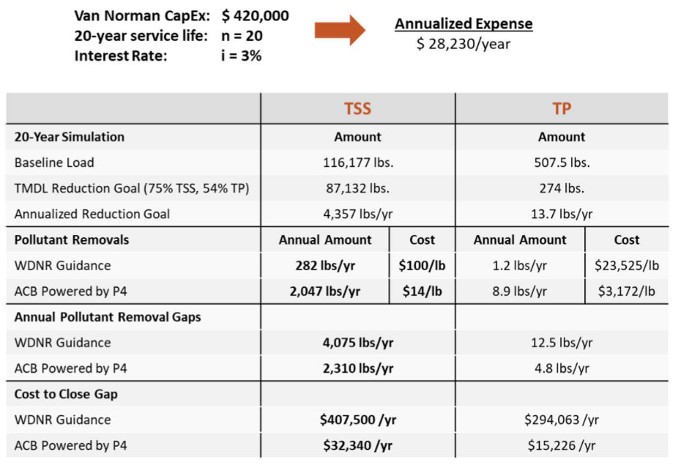Overperforming Stormwater Assets Save Money
TL;DR Real-time sensors show that PaveDrain permeable pavement outperforms regulations giving additional credit to those who implement it—saving money.
The Challenge- Compliance is Expensive
Communities across the nation are faced with growing pressures to comply with Total Maximum Daily Load (TMDL) and Municipal Separate Storm Sewer System (MS4) permits, which govern the persistent challenge of urban stormwater. These communities utilize similar planning and implementation tools to meet compliance goals, including engineering documents containing watershed delineations, hydrologic, hydraulic, and water calculations, as well as Best Management Practice (BMP) toolboxes. The one element that most of these plans lack is real-time operational data that better informs BMP selection to balance compliance, and by extension address the challenges of stormwater quality and quantity, without compromising design and use of a property.

The Solution- PaveDrain + Sensors
The PaveDrain permeable pavement system is a next generation permeable surface. It is unique among permeable pavements because 1) it has open joints and 2) it can handle heavy traffic loads. The open joints mean this system handles more rainwater (and run-on), and is easier to maintain— and is needed less frequently. The suitability to heavy traffic loads means that PaveDrain can be used in additional applications like roadways, traffic aisles, and truck stops; it also will not encounter issues like rutting. Simply put PaveDrain works well as a Stormwater BMP
However, because of the promulgation and implementation of rules based on first-generation systems, PaveDrain’s full environmental benefits are not accounted for, resulting in owners and engineers not correctly assigning the proper value and effectiveness to the system. Real-time sensors can monitor localized rainfall, and the performance of the base. These can document the exact performance of a PaveDrain system. Once verified, environmental and cost benefits in excess of the regulations can be credited.
Credit can be taken in a few ways
- For an MS4 permittee holder (or those complying with stormwater regulations), the construction of other BMP’s can be avoided because statutory requirements have been met.
- The value of the additional savings can be sold to nearby landholders or to city, county, or state officials to help meet their compliance goals
- For property owners, developers, or homeowners a credible argument can be made pushing back on prescriptive rules. Water doesn’t care about your rules.
The Proof- Data Doesn’t Lie
- The installed system took on significantly more water; a 33:1 run-on ratio was observed, while 5:1 was permitted
- The soil infiltrated significantly faster than clay soil; water infiltrated 50x faster than expected
Van Norman Alley–Milwaukee, WI
| Expected | Actual | |
|
Run-On Ratio |
5:1 | 33:1 |
|
Soil Infiltration Rate (in/hr) |
0.04 | 0.59 – 2.57 |
The Conclusion- Save Money with PaveDrain
The economic impact of using updated modeling parameters based upon measured performance metrics is summarized below. The cost to build the Van Norman Alley, full length, is estimated to be $420,000. Assuming a 20-year service life and 3% interest rate, the annualized payment for this BMP would cost the City of Cudahy approximately $28,230 per year.
Pollutant removal costs required to close gaps can be reduced by a factor of 12 when modeling implements measured data and parameter definitions that reflect system capabilities. This is the net effect of communities implementing P4 systems approved by the Wisconsin DNR.
This isn’t an isolated example either, check out recent work in PG County. Learn more and get a PDH: Course.

VP of Business DevelopmentAaron Fisher
Latest News

4 Ways To Reinforce Concrete
Concrete is one of the most fundamental materials used in construction. If you’re working on a domestic project or a […]

The Environmental Benefits Of Using Ready-Mix Concrete
The construction industry is changing quickly to meet the growing demand for sustainability and eco-friendly practices. One of the most […]

6 Essential Tips For Grouting Stone Veneer
Grouting stone veneer is an important step in the installation process that can significantly impact the overall look and durability […]

Should You Fill Hollow Concrete Blocks?
Hollow concrete blocks are widely used in construction due to their strength, versatility, and lighter weight compared to solid blocks. […]


